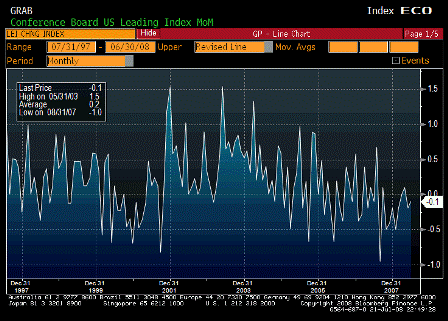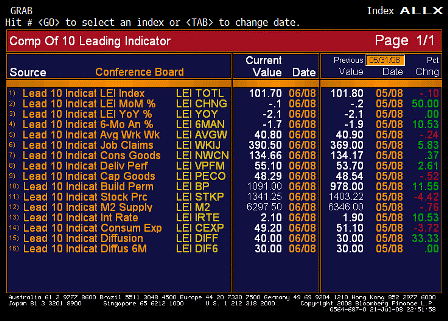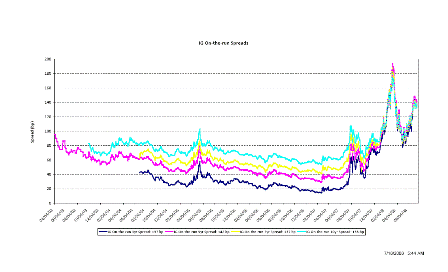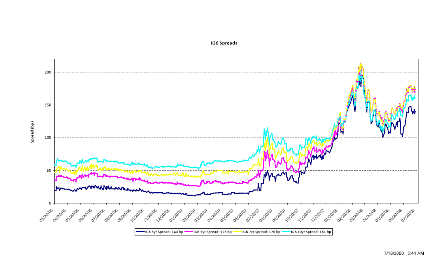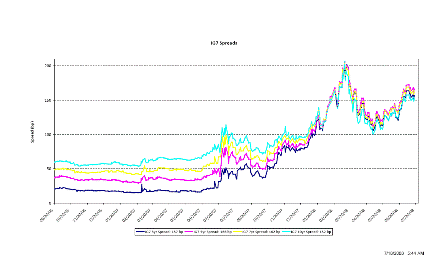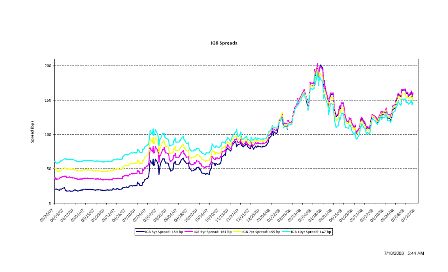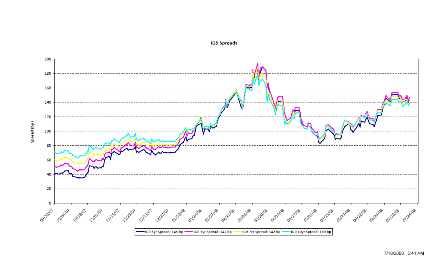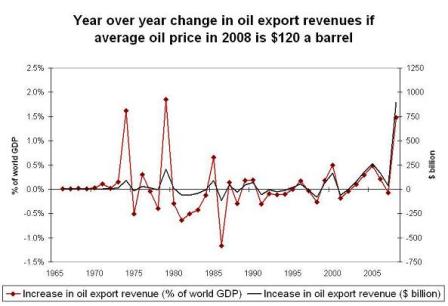Interesting how reports of higher inflation have often meant stronger currencies in the short run due to higher anticipated rates from the CB.
Inflation, however, by definition means the currency buys less of most everything; therefore, inflation and a weakening currency are one and the same.
But it can take a long time for markets to discount this.
Emerging-Market Currency Rally Dies as Inflation Hits
by Lukanyo Mnyanda and Lester Pimentel
(Bloomberg) The five-year rally in emerging- market currencies is coming to an end as central banks from South Korea to Turkey struggle to contain inflation, say DWS Investments and Morgan Stanley.
The 26 developing-country currencies tracked by Bloomberg returned an average 0.86 percent in the past three months, down from 1.63 percent in the first quarter, 8.2 percent for all of 2007, and 30 percent annually since 2003. For the first time in seven years, investors are less bullish on emerging-market stocks than on U.S. equities, a Merrill Lynch & Co. survey showed last week.
Confidence in the Indian rupee is weakening after inflation accelerated at the fastest pace in 13 years, stoked by soaring food and energy prices. South Korea’s won will drop this year by the most since 2000, while Turkey’s lira will reverse its biggest gain since at least 1972, the median estimates of strategists surveyed by Bloomberg show.
[top]

